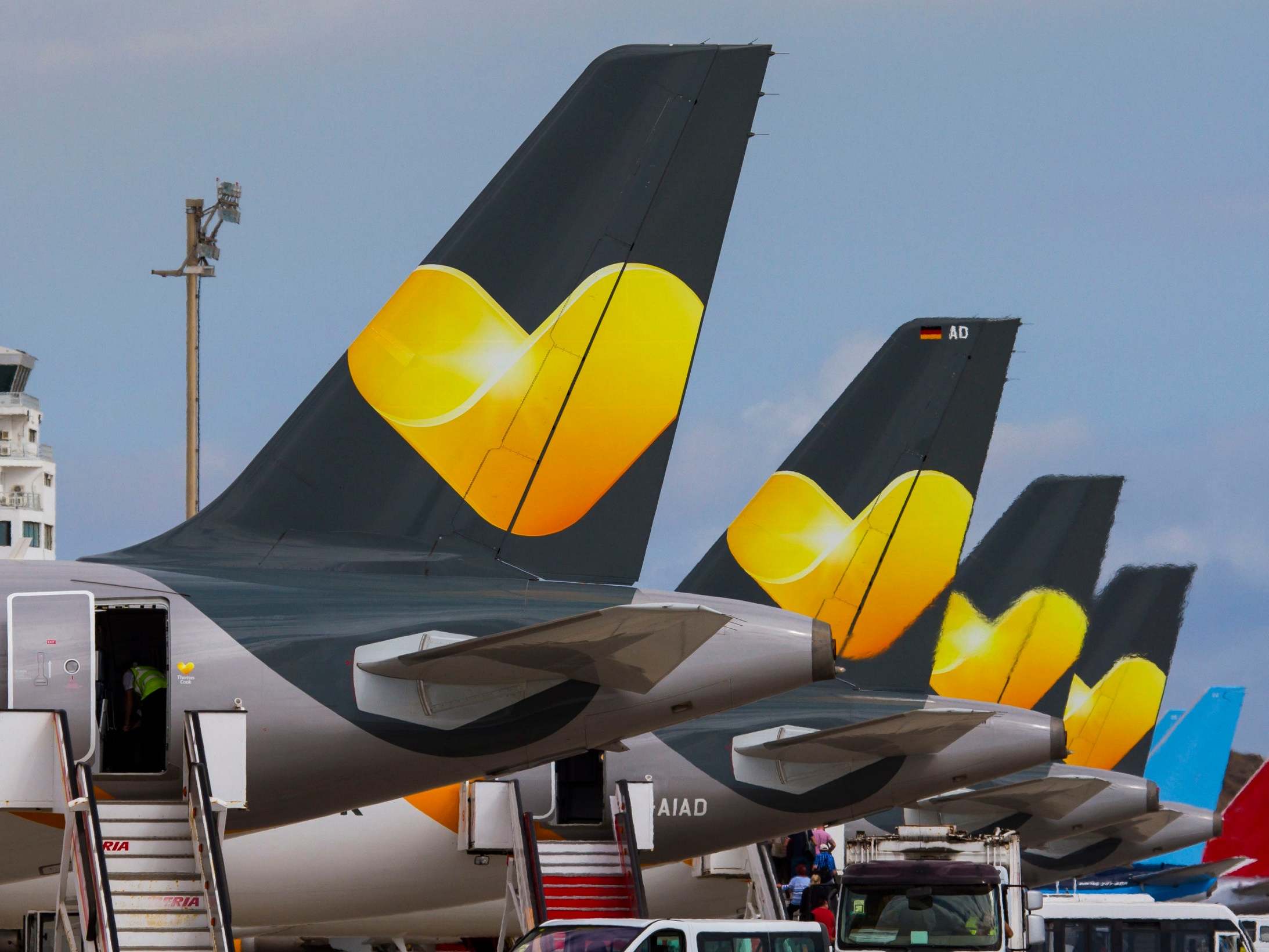Can I recoup the money lost from Thomas Cook?
Simon Calder answers your questions on clawing back flight costs, shoddy accommodation, and changing hotel because of an outbreak of sickness


Q We flew out to Turkey on 21 September and had been there only two days when we heard of the Thomas Cook collapse. The Civil Aviation Authority (CAA) only repatriated people up to 6 October, three days before our flight home. Why did the CAA only repatriate up to that date? It caused us huge problems.
We surmised we were responsible for our own repatriation. So we booked some highly inflated flights home. Why were other airlines allowed to put their fares up? At the moment we are out of pocket by £800. We paid for the original flights with credit card. Can you help recoup our losses?
Maureen S
A The collapse of Thomas Cook affected about 150,000 people who, like you, were expecting to fly home on the firm’s airline. Most people were brought back at no cost to themselves. Everyone booked between 23 September and 6 October was carried on alternative flights arranged by the CAA.
Holidaymakers on Atol-protected trips who were due to return from 7 October onwards were accommodated on scheduled flights. That leaves only a few unlucky passengers, you included, who were not Atol protected and due to return after 6 October.
The reason the Operation Matterhorn repatriation exercise continued for only two weeks was because that was the most effective way to bring the bulk of people back. Because almost everyone was on a trip of two weeks or less, the operation swept up the vast majority of travellers.
But because you had chosen not to book a package holiday with Atol protection, the CAA had no obligation to you. (It had no obligation to the estimated 65,000 non-Atol protected travellers, either, but the government took the decision to fly them home at a cost to the taxpayer of £40m.)
And on the question of putting fares up: this is normal when there is a spike in demand. I cannot see any prospect of fares being capped. In the hopefully most unlikely event that you get caught in the same way again, I suggest you start looking early for an alternative trip home, such as a connecting flight via Istanbul, for which fare surges are unlikely.

Q My son and his girlfriend are booked to go to an all-inclusive hotel next week that, according to online reviews, has serious problems with sickness. He called the travel company to ask if he could change hotels, and was told that they had the issue under control. However, the problem seems to have got even worse.
Again he asked to change hotels but again was told that the situation was normal and he would lose the entire cost of his holiday if he made any changes at this stage. Is it legal for a company to send clients to a hotel where they know there are problems?
Louise I
A I am afraid that so soon before departure there is nothing that can be done except accept the travel firm’s word that they have sorted out the problem. Reports on social media and review sites, however alarming, are not sufficient grounds for cancellation. The holiday company will be fully aware of what is being said online, and has no doubt been doing all it can to eradicate any causes of sickness.
Changing hotels or cancelling holidays so close to departure would be extremely expensive for the company, so you can understand why they would not want to offer the option if it is not absolutely necessary.
In the unfortunate event that your son or girlfriend were to get ill on the trip, then they could mount a legal claim afterwards. The fact that they had expressed concerns in advance, and asked to change hotels, may help their cause. Far better, of course, to stay healthy – and for that I advise eating away from the all-inclusive resort.
Yes, I understand that the food and drink has been paid for, but in my experience sickness outbreaks are far more common in all-inclusives than in properties where guests tend to dine outside at local restaurants.
Finally, if they is planning any November holidays in future, I recommend booking no more than a week or two in advance. Then there is less time for any problem to manifest itself between booking and the holiday.

Q I had a fantastic two-week break in Turkey with my wife. Unfortunately, the flight home was an absolute disaster. Our package holiday company let us check in at Antalya airport at 10.30pm, with no mention of a delay. But at midnight we were told there would be no flights home that night.
We had to go back to arrivals and collect our cases, and then it took an hour to get all the passengers onto several buses, and another half-hour to reach the hotel. Then it took a further three hours before all the passengers could get to their rooms, during which time no food or water was available.
When we reached our room it had a broken sink, a cracked bathtub and mould all around the bath. We were stuck for a total of 28 hours. The food was inedible, and there were uncleaned public areas.
We have formed a WhatsApp group to help each other regarding a claim for the loss of enjoyment and especially lack of health and safety within the hotel. What do you think we are entitled to?
Ian S
A Your experience sounds awful, but let me try to manage your expectations on compensation – starting with the sudden flight cancellation/extreme postponement.
You may well be able to claim €400 (£344) per passenger due under the European air passengers’ rights rules. These regulations require airlines to pay out for long delays and cancellations, unless the carrier can claim “extraordinary circumstances which could not reasonably have been avoided”.
For a flight to be cancelled/postponed so suddenly suggests that it may have been a technical defect (in which case you can claim) or staff illness (for which a claim is unlikely to succeed).
Beyond that, though, I am struggling to see the legal basis for a further claim. You should certainly alert the travel firm to any safety issues within the hotel where you stayed. The company should get its staff in Turkey to investigate, and not send people there if concerns are identified. But I am afraid that hotels booked by airlines at short notice are often far from perfect. The fact that they are able to offer hundreds of rooms at the drop of a hat indicates they do not have a thriving business.
If you can demonstrate that the food was actually inedible, and provide receipts showing you ate elsewhere, you may be able to claim for them. As for “loss of enjoyment”: that is something that holidaymakers who waited an extra 28 hours in the UK certainly can claim, but I don’t think you would succeed in a case in which you got an extra day-and-a-bit, albeit stuck in a lousy hotel.
Things could have been even worse: airlines frequently fail to deliver their stipulated duty of care to stranded passengers and face no sanction. At least you were provided with a hotel, however dismal.
Email your question to s@hols.tv or tweet @simoncalder
Join our commenting forum
Join thought-provoking conversations, follow other Independent readers and see their replies
Comments